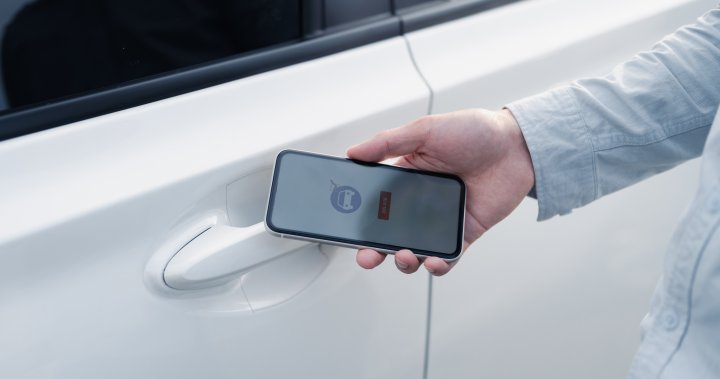With car theft accelerating in Canada, the federal government and law enforcement officials say more needs to be done to restrict the different technologies being used by criminals to steal vehicles.
The country’s auto theft problem was front and centre in the capital, Ottawa, Thursday with cabinet ministers meeting law enforcement agencies, border officials and other industry stakeholders at a national summit to combat increasing vehicle thefts.
Innovation, Science and Industry Minister François-Philippe Champagne said the government will be taking steps to ban the importation, sale and use of consumer hacking devices that criminals use to commit vehicle theft.
“On prevention, criminals are using tools like uncertified and, let me quote, immobilizer reprogrammers and GPS jammers to steal cars,” he said during a press conference in Ottawa Thursday.
He said the government has already taken action to remove more than 300 uncertified and illegal products offering and listing from the Canadian distribution chain.
“But we need and we are going to be doing more,” Champagne said.

Speaking at Thursday’s summit, Terri O’Brien, president and CEO of Équité Association, said ever since the innovations in keyless and remote start technologies were introduced in vehicles, criminals have been taking advantage of “outdated standards” dating back to 2007.
“They’re able to quickly and easily exploit these vulnerabilities, gaining access to a locked vehicle in under 60 seconds,” she said.
Get the latest National news.
Sent to your email, every day.
A lack of information sharing, loopholes in the shipping declaration systems and outdated anti-theft safety standards have paved the way for growing criminal networks and crime rings that are expanding their operations across Canada, O’Brien added.
What are the technologies car thieves use?
While the advances in technology with keyless driving have helped with convenience for car owners, they have also opened up the door for vulnerabilities.
Bryan Gast, vice-president of investigative services at Équité Association, identified three main ways that criminals use technology to steal cars.
One is through the “relay attack,” in which the criminals use readily available and cheap tools to intercept the radio frequency signal between the vehicle and the key fob and start the vehicle.
Another is called “reprogramming theft.” In this case, the criminals break into the vehicle and plug into the onboard diagnostic port, which every car is legally mandated to have. It monitors emissions, mileage, speed and other data about your car and allows a mechanic to check for any problems. Criminals plug into that same port and are able to reprogram the key fob.
Meanwhile, in a “CAN bus” or “CAN injection” attack, perpetrators try to access the car’s Controller Area Network. This can include spoofing and introducing bogus messages to trick the car’s security system into unlocking the vehicle.
“I think it’s important to be aware of the methods that they’re using, so you can protect yourself as a consumer until the vehicles themselves are harder to steal in the first place,” Gast said in an interview with Global News.

Can these attacks be blocked?
Gast said the sale of devices that are used by criminals to steal cars should be blocked, making them illegal to buy online.
Car owners can also protect themselves by using an onboard diagnostic lock and an aftermarket immobilizer that can prevent relay attacks, CAN bus attacks and reprograming attacks, he said.
Beyond technology, some other measures can also make cars harder to steal in the first place, including parking in a garage or well-lit area and using a steering wheel lock.
Preventing car theft should be a “layered approach,” Gast said.
He said a new modernized standard has already been drafted and ready to go and considers the new methods of theft.

© 2024 Global News, a division of Corus Entertainment Inc.




